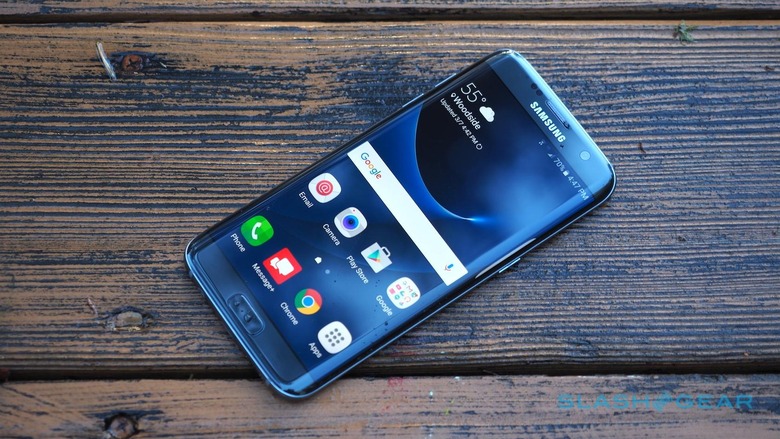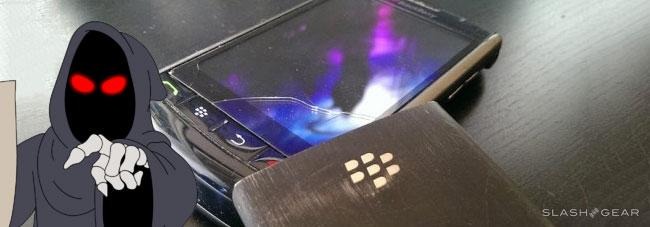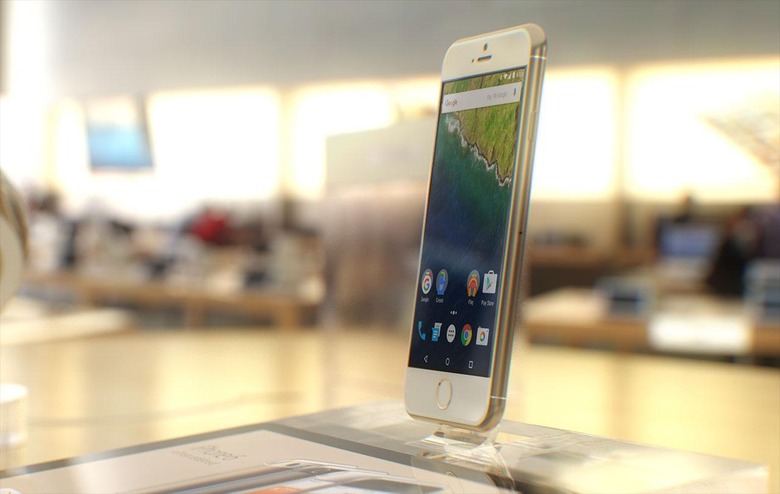Why I refuse to believe iPhone is forever
Over the past several years, I've seen attitudes change when it comes to the iPhone and the mobile world in general. I refer mainly to two groups of people whose understanding of the world tends to reflect society at large, especially when it comes to technology. People who I meet at gas stations on long trips are part of one group – the other is my extended family. According to them, things are changing. Or they have the potential to change.
Comments from gas station attendants and family members of mine are by no means objective. Of course they're skewed – they're opinionated, they're ill-informed, and they're most certainly going to be (at least to some degree) positioned with a knowledge of what I do for a living in mind. That said, I believe the underlying message is that there are several loose scales in the dragon hide that is Apple's public perception of the iPhone.
Each of the following questions are directed at one of two of my extended family members, both of whom will remain anonymous. A tiny bit of detail should give you insight on what sort of people they are:
Anon 1: Adult, retirement age, lives in suburb of major metropolitan city.
Anon 2: Adult, mid-30s, lives in major metropolitan city.
B: The author of this article/interview, Chris Burns.

Anon 1: "Is that a Samsung Galaxy? A friend of mine I work with has one of those, it's really nice. I want them to get me one next time I re-up."
B: "Yeah it's the newest one, Galaxy S7 – do you mean the next time your work buys you a phone for work related use?"
TAP ALSO: My iPhone 7 Wishlist in 3 parts (not just Android)
Anon 1: "Yeah I still have this BlackBerry from a few years ago they had everyone get. The trackball pointer doesn't work anymore."
B: "Do they let employees get iPhones, or just BlackBerry or Android?"
Anon 1: "You can get whatever you want now. But I don't want an iPhone, I don't use my [MacBook] laptop anymore anyway."
B: "Well, I mean, you don't need to use a MacBook to be able to use an iPhone – and iPhones can sometimes be a little easier to get used to for some people than Android phones, and certainly easier than BlackBerry."
Anon 1: "Yeah but I learned the BlackBerry pretty quick, and I like the screen on the Galaxy, it's really nice."
B: "Yeah no argument there. Are you going to use apps and play games and stuff if you get one?"
Anon 1: "Maybe for email, and [Other Relative] goes on hers to do Facebook, I might have to start doing that."
In essence, for Anon 1, the choice was not about getting a device they knew to be simple to use, but one that their friend had already at work. For this average citizen, choosing a smartphone was not about app ecosystem or familiarity, it was about getting a nice screen to look at.
And why shouldn't it be about the device display?
Over the past several years, every one of the most major app developers have created software for both platforms.

On a separate occasion, the following conversation/interview occurred with Anon 2.
Anon 2: "My iPhone is crapping out. I swear the battery does not last as long as it did when I got it."
B: "I suppose that is possible."
Anon 2: "Should I get one of those [HTC 10] Android phones or another iPhone when I get around to it?"
B: "I guess it's up to you, really, what do you want the phone to do?"
ALSO SEE: iPhone 7 potential wanes as Android begins to Tango
Anon 2: "I just want to be able to have it do what this one does, but have a little bit bigger screen and last longer on an overnight charge."
B: "Do you use a lot of apps that you bought from the app store, or just free stuff?"
Anon 2: "I use like, 4 apps, maybe. I have email with the mail app, I use the GPS, I go on Pinterest sometimes, and I check Twitter and Facebook. That's it."
B: "When you say GPS do you mean Apple's Maps app or Google Maps or something else?"
Anon 2: "I use the Maps app here, is that Google Maps?"
B: "It's Apple Maps, but I think you'll probably be fine with Google Maps if you don't know what the Maps app is run by on your phone now."
Anon 2: "I would say you're probably right."
B: "Those other apps you can get on iPhone (obviously) and on Android, so that won't matter all that much."
Anon 2: "And I've used Android phones before, I use yours to take pictures and look up stuff when I can't find mine."
B: "Then I suppose you could just get whatever phone looks and feels best to you, since the software isn't especially different for what you're doing with it."
Anon 2: "I definitely want a bigger phone, but not too big. I don't really care if it's an iPhone or not."

When it's time to upgrade to a new phone, it's time to speak about what the user has assimilated over the years that've passed since they got the phone they have now. In the past 2 or 3 years (or sometimes more), public perception of smartphones – iPhones and Android devices of all sorts included – has changed to a small but significant degree.
The iPhone is no longer perceived as the only choice by my extended family members, friends, and the odd stranger I meet that's especially interested in smartphones. Where back several years ago it was still perceived, by most of the people I knew personally, that the iPhone was the coolest, most well-put-together, most ubiquitous mobile phone in the world, today Apple doesn't seem to hold quite as total an amount of sway.
Does this mean Apple is on its way out?
Not so much.
The company may have had a bit of an iPhone sales "stall" in their most recent quarter, but they're still one of the biggest companies in the world, and they still sell more iPhones than basically any other company sells a wide variety of smartphones combined.
I don't know how Apple will be toppled as the king of smartphones, keeper of the minds of smartphone users the world over, but I believe it's possible.
Even if it happens because of a release like one of these, I think it is certainly possible that the iPhone would become secondary to a new smartphone king.
